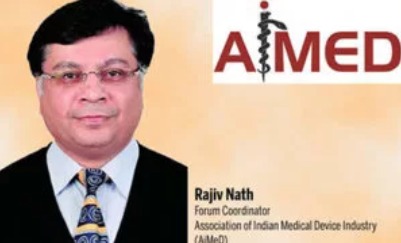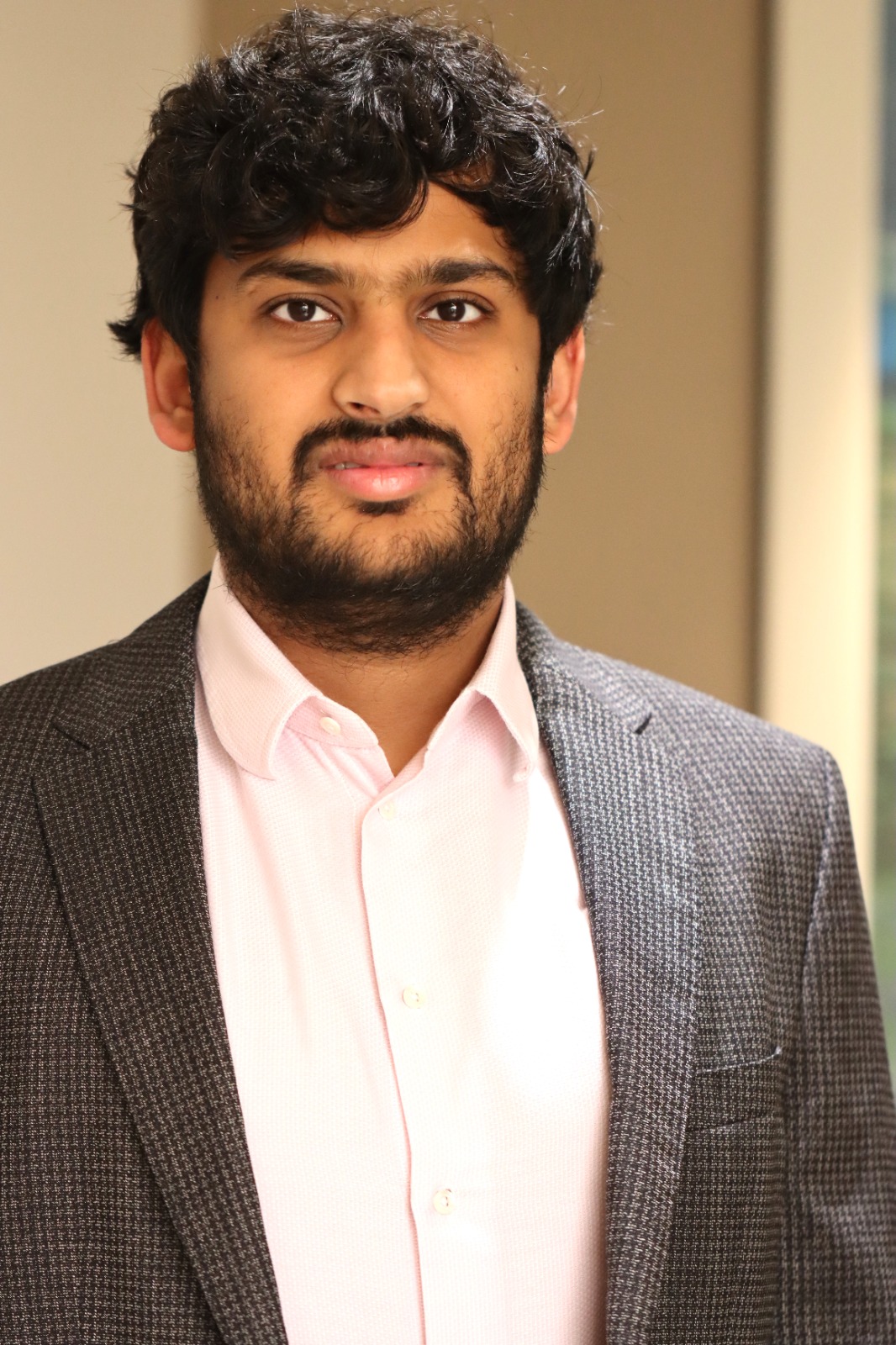Techvolution: Revolutionizing Indian Healthcare
Mr. Akshay Oleti, Business Head, Fortis Hospitals, Bengaluru The healthcare sector in India is undergoing a transformative shift with the rapid adoption of technology. From electronic health records (EHRs) to telemedicine and artificial intelligence (AI), technology

Mr. Akshay Oleti, Business Head, Fortis Hospitals, Bengaluru
The healthcare sector in India is undergoing a transformative shift with the rapid adoption of technology. From electronic health records (EHRs) to telemedicine and artificial intelligence (AI), technology is revolutionizing healthcare access, delivery, and patient outcomes. Technology adoption in Indian healthcare has been gaining momentum in recent years. The COVID-19 pandemic further accelerated this trend as hospitals and clinics turned to digital solutions to ensure patient safety and continuity of care. Some of the most commonly adopted technologies in Indian healthcare include:
- Electronic Health Records (EHRs): EHRs have been instrumental in digitizing medical records, enabling healthcare providers to access patient information quickly and securely. By transitioning from paper-based records to digital formats, EHRs improve care coordination, reduce medical errors, and provide a comprehensive view of a patient’s medical history.
- Telemedicine: Telemedicine has emerged as a vital tool, especially in rural and remote areas, where access to healthcare is limited. It allows patients to consult with healthcare professionals remotely, using video conferencing and other digital communication platforms. Telemedicine has proven particularly valuable during the pandemic, ensuring patients can receive medical advice and prescriptions without the need for in-person visits.
- Artificial Intelligence (AI): AI has made significant strides in healthcare, offering innovative solutions for diagnosis, treatment, and patient management. AI algorithms can analyze vast amounts of medical data, helping healthcare professionals in disease detection, risk assessment, and treatment recommendations. AI-powered chatbots and virtual assistants also enhance patient engagement and support self-care management.
- Internet of Things (IoT): The Internet of Things has revolutionized healthcare through interconnected devices and sensors. Wearable devices, remote monitoring systems, and IoT-enabled medical equipment collect real-time patient data, facilitating remote patient monitoring, chronic disease management, and early intervention. IoT in healthcare has the potential to improve patient outcomes and reduce healthcare costs.
In addition to the areas mentioned above, technology adoption in Indian healthcare is also poised to address the challenges of healthcare accessibility and resource distribution. India is a vast and diverse country with significant disparities in healthcare infrastructure and resources between urban and rural areas. Technology can bridge this gap by bringing quality healthcare services to underserved regions.
Future Adoption of Technology: The future of technology adoption in Indian healthcare is bright, promising further advancements to meet evolving healthcare needs. Here are some areas where technology is expected to have a profound impact:
- Preventive Care: Technology can play a pivotal role in promoting preventive care practices. Mobile apps and wearable devices can provide personalized health advice, track physical activity, monitor vital signs, and encourage healthy behaviors. With increased awareness and access to preventive care tools, individuals can take proactive measures to prevent chronic diseases, reducing the burden on the healthcare system.
- Remote Monitoring and Home Healthcare: Advancements in IoT and wearable devices will enable more effective remote monitoring and home healthcare services. Patients can be remotely monitored, and healthcare providers can receive real-time data on vital signs, medication adherence, and disease management. This allows for early detection of complications, reduces hospital readmissions, and improves overall patient outcomes.
- Precision Medicine: Precision medicine, which tailors treatments based on an individual’s genetic makeup, lifestyle, and environmental factors, holds tremendous potential for improving patient care. Advancements in genomics, AI, and big data analytics enable precise disease diagnosis, targeted therapies, and personalized treatment plans. Implementing precision medicine in India can lead to better treatment outcomes, reduced adverse effects, and enhanced patient satisfaction.
- Blockchain in Healthcare: Blockchain technology can revolutionize healthcare by enhancing data security, interoperability, and patient privacy. It can ensure secure sharing of medical records, facilitate consent management, and streamline insurance claims and billing processes. Implementing blockchain in healthcare can lead to improved transparency, efficiency, and trust between patients, providers, and insurers.
- Augmented Reality (AR) and Virtual Reality (VR): AR and VR technologies have the potential to transform medical education, training, and surgical procedures. Medical students and healthcare professionals can benefit from immersive training simulations, enabling them to practice complex procedures and improve their skills. During surgeries, AR can provide real-time patient data and guidance, enhancing precision and reducing surgical risks.
How is data analytics helping?
Another area with immense potential for technology adoption in Indian healthcare is data analytics and predictive modeling. India generates massive amounts of healthcare data through various sources, including electronic health records, medical imaging, genetic information, and population health data. Leveraging big data analytics and machine learning algorithms can unlock valuable insights that can guide decision-making, resource allocation, and policy formulation.
Data analytics can help identify disease patterns, monitor disease outbreaks, and support early detection and prevention strategies. By analyzing large datasets, healthcare providers can identify high-risk populations, design targeted interventions, and allocate resources where they are most needed. Additionally, predictive modeling can help forecast healthcare demands, plan for resource allocation, and optimize healthcare delivery.
Moreover, data-driven research and collaboration can foster innovation and advancements in healthcare. By sharing anonymized data and collaborating on research projects, healthcare institutions, researchers, and industry partners can collectively work towards developing innovative treatments, improving diagnostic accuracy, and finding solutions to complex healthcare challenges. Open data initiatives and collaborations can accelerate the pace of medical research and contribute to the global knowledge pool.
The adoption of technology in Indian healthcare is rapidly progressing, reshaping the industry’s landscape and improving patient care. The COVID-19 pandemic has accelerated the adoption of digital solutions, highlighting the need for accessible and efficient healthcare services. With ongoing advancements in EHRs, telemedicine, AI, IoT, and emerging technologies like blockchain, precision medicine, and AR/VR, the future of Indian healthcare holds great promise. By embracing these technologies, India can achieve enhanced patient outcomes, improved preventive care, and a more sustainable healthcare system for all its citizens.
Furthermore, the adoption of technology can also enhance healthcare administration and management in India. Digital solutions can streamline processes, reduce paperwork, and improve overall efficiency in healthcare facilities. For instance, automated appointment scheduling systems, electronic billing and payment processes, and inventory management systems can optimize resource allocation, minimize waiting times, and ensure smooth operations.






